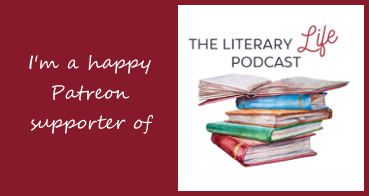Recently a parent asked my husband if his Glee Club, in which her children had participated, always repeated songs. Apparently, they had been comparing notes with former members, and these former members, for whatever reason, said several times to their friends, “Oh, we did that song.” Whether or not it should have, it made the current members feel their experience was less than. My husband explained to this parent that, yes, new music was learned, but there was also something known as “repertoire”, where some things became standard fare, and repeated performances of these songs happened. I wondered how these kids could be unfamiliar with groups in the performing world — their own favorite bands, perhaps — who sing their own music repeatedly in concert. I was reminded of this interaction when reading this posting from one of my favorite “bands” — The King’s Singers:
This is one of the best-loved arrangements in our library, and it means so much to us. Getting the opportunity to expand it and create a version with Voces8 (as the encore in our ‘Live From London’ concert) was just wonderful.
They have a library of tunes that they perform (and sometimes even record more than once). They sometimes expand and create new versions of those songs. Why do we allow that for and expect that of the groups we listen to, but feel that we ourselves in our own groups should always be learning something brand-spanking new to us? Where do we even leave room for improving on our own work? Why are we willing to work hours and hours on a song, give one performance of it that lasts less than 5 minutes, and then be ready to put it away forever?
The selection that The King’s Singers shared is actually an arrangement of a song written, performed, and recorded by Billy Joel. Which brings me to another point. Imitation in art, which here would be not just a sampling, but a complete cover. Today we have this notion that imitating any part of an already known story or song is cheap or “lame”; whereas, in the past, imitation was expected. Audiences at first showings of Shakespeare’s plays already knew the stories for the most part — they contained known myths or histories or standard tropes in story. They were thrilled to know what was coming, and if there was a twist, then that was very cool, too. Today we say, “Oh, that’s been done before. Can’t they come up with anything New?” I was one of these kinds of people once….upon a time. Even though I had your standard English and literature elementary to college education, and read tons of stories on my own from the time I could read on my own, I did not know about this (sanctioned) imitation thing until the past few years as I listened to The Literary Life podcast and had classes with Angelina Stanford and Co.
Methinks we’ve become rather arrogant in our modern age, always wanting something New. We’re so Progressive. If it’s completely New it must be better than the Old and Already Done. And we want nothing else but that. It doesn’t matter if it good art or not. New is better than Old and Already Done. Already Done equals Boring. This is sad to me. And not right.
So I leave you with this beautiful art — The King’s Singers arrangement mentioned above. It’s Old and Borrowed and Already Done. Tell me this is not worth singing and hearing over and over.











